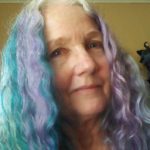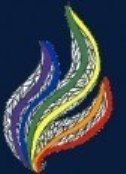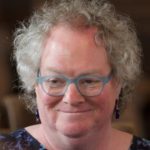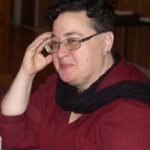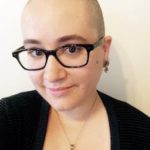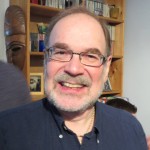Ruach HaYam Workshop at Congregation Eitz Chayim, 136 Magazine Street, Cambridge, MA – April 19, 2018. See end of post for logistics.
Join us for a discussion led by Penina Weinberg about Joy Ladin’s Tikkun Magazine article (fall, 2014): “Both Wilderness and Promised Land: How Torah Grows When Read Through LGBTQ Eyes.” (We will have copies at the study session). This is by way of preparing us for Joy’s book, The Soul of the Stranger: Reading God and Torah from a Transgender Perspective, due out later in 2018 from Brandeis University Press. We hope to have an opportunity to learn with Joy at that time!
There is so much we can talk about from the article. In order to fully discuss it, and to see if we agree or disagree with Joy’s conclusions, we will look up and study many of the verses in Tanakh to which Joy refers.
There is considerable tension between queer creation and the establishment of sacred normativity. (PS, those of you who learned with Ezra Rose Greenfield , note the establishment of God’s **angelic** court.) Here is a taste of what Joy has written.
“The Torah’s God is disembodied, incomparable, and incomprehensible in human terms. Judaism, Christianity, and Islam developed theologies based on the God we encounter in the Torah, but by Iron Age standards, this God is utterly queer. Later Jewish traditions and texts normalize this queer God, imagining God as a king or emperor surrounded by an angelic court. But the God we encounter in the five books of Moses has no normalizing context, no divine hierarchy to define God’s kingship, no divine family for God to patriarchically dominate, no consort, and no body. As a result, despite the masculine pronouns and verb forms assigned by the text, God has no gender, masculine or otherwise, because God has no way to demonstrate or perform a gender. Gender is a system; even the simplest form of that system, the gender binary, requires at least two of a kind, and God, as Jews affirm in the Shema prayer, is One. And, as many of us know, being singular, living outside recognized human categories and relationships, makes one very queer indeed….. We are queer children of a queer God-and by ‘we,’ I mean the Jewish people. When queer Jews read Torah as our own, we help all Jews recognize and reclaim our heritage of radical queerness, rekindling the flame of desire that led our ancestors to abandon known norms and follow God through a wilderness unknown toward a future founded on the principle that being true to God requires being true to ourselves.”
Penina Weinberg is an independent Hebrew bible scholar whose study and teaching focus on the intersection of power, politics and gender in the Hebrew Bible. She has run workshops for Nehirim and Keshet and has been teaching Hebrew bible for 10 years. She has written in Tikkun and HBI blog, founded the group Ruach HaYam and is president emerita and webmaster at her synagogue. Penina is a mother and grandmother.
** Logistics**
Study starts promptly at 7:15 pm. We open the doors at 6:45 for schmoozing. Feel free to bring your own veggie snack for the early part. A parking consideration is in effect for the three blocks around EC during all regularly scheduled events. It is a good idea to put a note in the windshield that you are attending an event at EC.
Accessibility information: all gender/accessible bathrooms, entry ramp.
Ruach HaYam study sessions provide a queer Jewish look at text, but are welcoming to any learning or faith background, to all bodies, are friendly to beginners.

